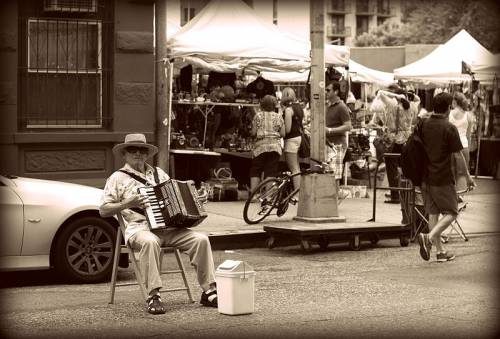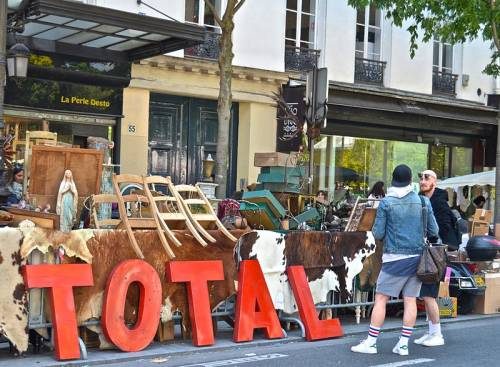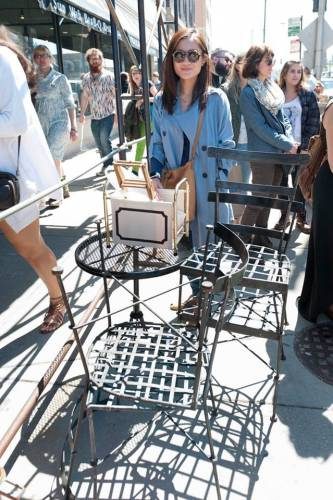Sunday Flea Market
According to the Oxford Dictionary the term "Flea Market" is based on the French term marché aux puces. Based on the literal translation, this was name given to the "original" Sunday Flea Market in Paris. The market specialized in shabby second-hand goods that could have contained fleas. The earliest use of the phrase Flea Market, according to the Oxford Dictionary was 1922.
I was lucky enough to go to Paris 3 years ago and see the marché aux puces (market of the fleas) for myself. This isn't the kind of Sunday flea market we are used to in the US. This is permanent. Stalls or booths that reminded me of storage units. They can be closed in between weekends. They can be closed and locked up in between weekends. All kinds of merchandise was being served up, from vintage clothing and jewelry to brand new Doc Martens. There are wandering streets and alleys full of these stalls. At the Paris Flea Market, most are storing and leaving their goods in between. Being a vintage lover and buyer, finding vintage and antiques in France wasn't hard to do but figuring out what they called it wasn't as easy.
I found that their version of the thrift store is a Fripperie. There are many definitions for this word. The trade or traffic in old clothes, The place where old clothes are sold or Cast-off clothes to name a few. The "fripperies" we found were definitely about vintage and used clothing. One thing worth mentioning, Paris is the first time I've ever seen a piece of Hermes in a thrift store. I wish that would happen more in the United States. In all honesty, trying to research this topic was tough. There's not a TON of info on the origins of flea markets.
In the U.S. Monday Trade Days in Canton, Texas is said to be first the first flea market starting in 1873. It was a place to trade horses. Then people would bring their unwanted goods along. These weren't professionals. They were just adding their personal goods to make a little extra money. First Monday is definitely still happening in Canton, TX. I kept digging and I found Russell Carrell. I'd never heard of him. Maybe east coast dealers have. According to his New York Times obituary, he made quite an impact on the world of flea markets and was the pioneer in the United States of the type of flea market or show we know today. Russell was a show promoter. He managed the Winter Antiques Show at the Armory in New York City from 1960 to 1987. At one point he managed 28 different shows. According to the New York Times: Mr. Carrell also established what was billed as the very first flea market in the United States. It happened on the Saturday after Labor Day of 1958 in a field behind his Salisbury home, an antique by itself, built in 1740. The idea grew from his fascination with the famous Marche aux Puces in Paris and from watching furniture being sold off the back of a truck. He called his own, annual version Antiques in a Cow Pasture, and it caught on quickly. At its peak, the Salisbury flea market drew some 200 dealers and thousands of prospective customers, weather permitting.
I'm not sure how many pioneers in the antiques and vintage world get honored in the New York Times. Impressive. Heading off on a world tour and you'd like to hit a Sunday flea market? What terms are you looking for? Australia- trash or treasure markets Belgium- French speaking Belgium Brocante or vide-grenier United Kingdom- Car boot sales (boot equals trunk in US) an indoor sale is a jumble sale Swiss- German speaking Swiss use the term Flomärt which is a variation of the word of Flohmarkt, meaning literally "flea market" India- gurjari or shrukawadi bazaar or even as juna bazaar Reference links- Flea Market on Wikipedia Oxford Dictionary New York Times Obituary of Russell Carrell




